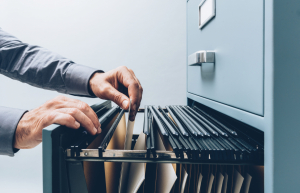Employers
Making Plan Changes During the COVID-19 Pandemic
Needless to say, these last several weeks have created challenging times for a significant number of employers. Stay-at-home orders and other impacts from the COVID-19 (Coronavirus) pandemic have put many employers in a position where they must make sudden health plan and benefit changes.
The short answer is that they are both defined contribution plans.
The Individual Coverage Health Reimbursement Arrangement (ICHRA) is an employer-sponsored defined contribution health plan whereas a 401(k) is a defined contribution retirement plan.
Many insurance carriers are offering up a limited time special enrollment period due to the COVID-19 (Coronavirus) pandemic. Call it a midyear open enrollment period if you will. No qualifying event is necessary to enroll in the group health plan. Many insurance carriers (at the discretion of the employer) are allowing employees to join the group health plan if they waived coverage during the employer’s typical open enrollment period. This comes as good news for many employees.
The economic stimulus bill that we’ve all been hearing about has officially been approved by Congress and was signed into law by President Donald Trump on Friday. This $2 trillion bill will provide stimulus checks to many Americans, increase unemployment benefits for workers and provide low interest loans for many small businesses, among many other things.
In just a very short period of time, the Coronavirus Disease (COVID-19) is impacting health plans and health care throughout the country. Here are some key examples of recent developments:
On March 2, 2020, the Supreme Court of the United States (SCOTUS) announced that it would once again hear a case on the Affordable Care Act (ACA) and whether the law is constitutional.
COBRA has been an administrative challenge for employers dating back to 1986 when it first became effective. On the surface, it’s easy to comprehend COBRA and its purpose, but behind the scenes, an employer has a lot of obligations it must account for to ensure compliance with the law. Take this scenario for example:
The Affordable Care Act (ACA) requires two types of reporting:
The Affordable Care Act (ACA) includes several taxes to fund various parts of the healthcare law, such as Medicaid expansion and Health Insurance Marketplace subsidies. Since the ACA became law, there have been debates in Congress about many of the taxes. Some have argued for repeal, some have argued for change and others have argued for extensions of various tax components of the law.










